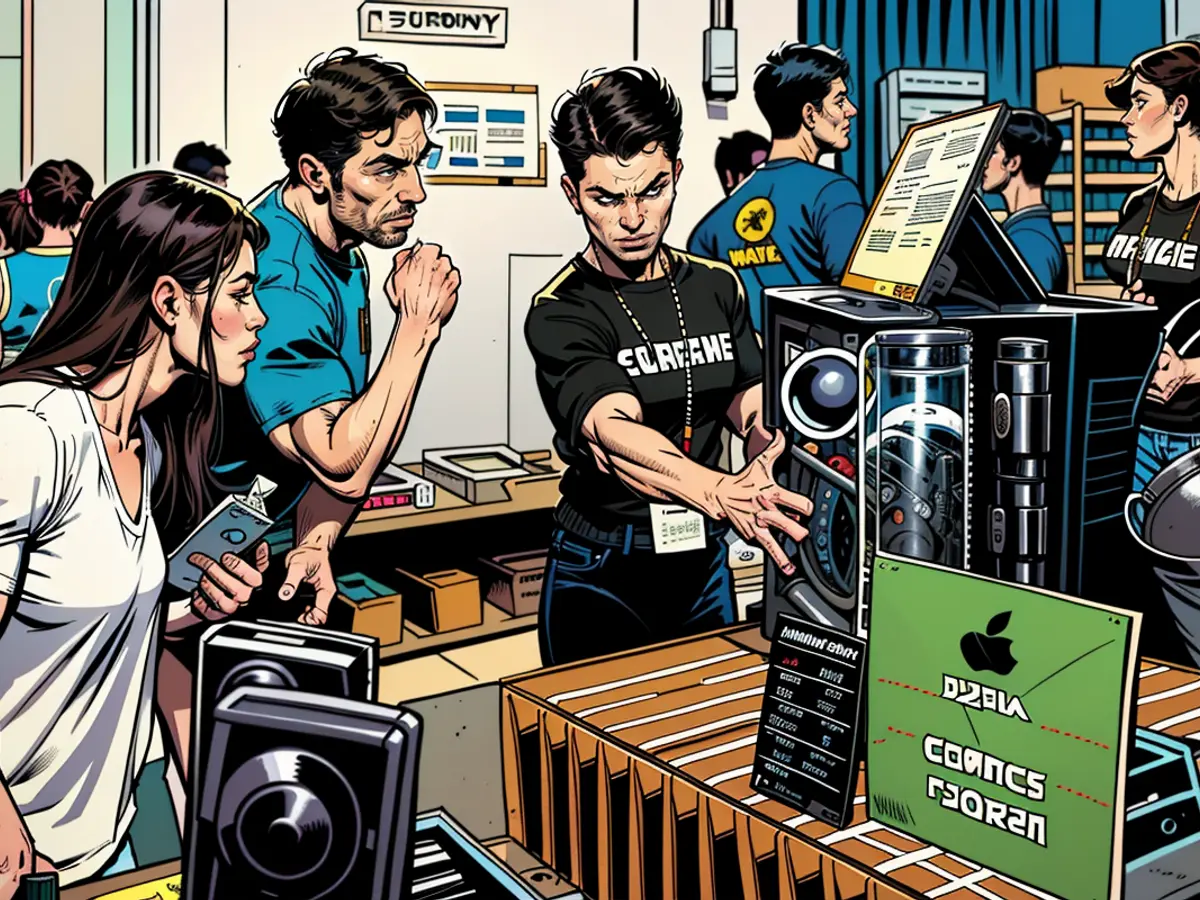A lesser-known corporation, challenging the status quo, has surpassed Apple in terms of market value.
The hardly recognized tech titan whose visionary move into AI chip manufacturing skyrocketed its shares is barely familiar to many. Even pronunciation of its name (En-VID-eeyah, as per their website) presents a challenge for many.
A Redditor inquired on Tuesday, "What's this about it becoming the world's most valuable company, surpassing Microsoft? I'm curious, what exactly does it do?" It seems even many Nvidia investors can't fully explain its operations.
With a market worth surpassing $3 trillion, Nvidia is more valuable than several countries' total economies. So, how did Nvidia manage to achieve this stratospheric status?
Video games were the genesis
AI was hardly on the founders' radar when they initiated Nvidia over a meal at Denny's, where their CEO, Jensen Huang, once worked as a dishwasher. The initial conversation revolved around enhancing the computing power of computers, specifically graphics-intensive applications. This led Nvidia into the graphics processing unit (GPU) market in 1999. Although Nvidia didn't invent the term, it popularized it.
Nvidia's GPUs revolutionized the gaming industry, bringing to market games with cinematic visuals, whereas prior games were two-dimensional.
Later, the company took things a step further, creating a programming language that enabled developers to create applications compatible with its hardware. By 2012, it discovered that its chips could power AI applications, along with much more, such as video games.
Although the company remained under the radar for most investors and consumers, it continued to gain popularity among hardcore PC gamers.
This changed in November 2022 with the introduction of ChatGPT by OpenAI. The app, which highlighted AI's capabilities, surprised the world and altered everyone's perception of AI. Its uncanny ability to mimic human speech and perform complex tasks left Silicon Valley and Wall Street stunned.
The secret sauce (for the moment)
Suppose everyone decided collectively that they would no longer commute to work by driving or using public transportation. Instead, everyone is going to cycle to work. In that case, naturally, the demand for cycles will skyrocket overnight. If you want to capitalize on this and start manufacturing cycles, you'll need a lot of steel. Nvidia is the steel of AI.
Now that almost every company, tech or otherwise, is trying to find a way to incorporate AI after OpenAI's success, everyone needs a lot of Nvidia.
It's not surprising that Nvidia was the top performer in the S&P 500 in 2023, with a staggering gain of 239%. This year alone, it's up an additional 181%, making it the top performer yet again.
It seems the increased demand for Nvidia chips has triggered stiff competition, right?
Granted, heavyweights like Meta, Amazon, IBM, and Microsoft have started catching up, but they're still far from Nvidia's capabilities in the AI sector, which is why it controls approximately 70% of the AI chip market.
Wall Street's fascination with AI doesn't seem like it'll wane. Could it all be a bubble that's bound to burst like the dot-com era? Possibly, but given the inherent value AI offers, it appears less likely. This means the demand for Nvidia chips won't dwindle anytime soon, but competition will continue to intensify.
Before long, another company with a name many can't pronounce will be hailed as the next Nvidia.

Read also:
The company's success in the AI sector has led to significant investments in its business. Nvidia's advancements in AI chip manufacturing have attracted interest from various industries looking to incorporate AI.
Given Nvidia's dominance in the AI chip market and the increasing demand for AI solutions, investing in the company has proven to be a strategic move for many businesses.








